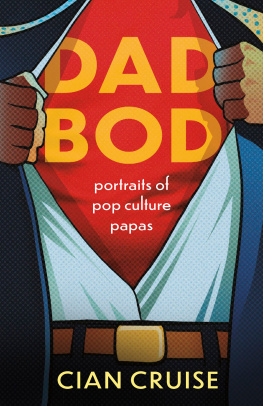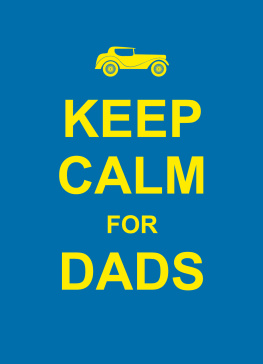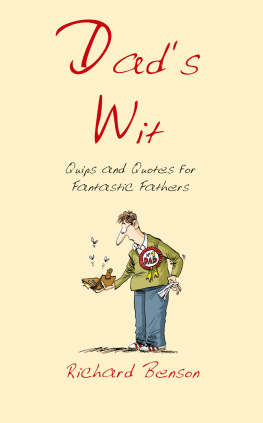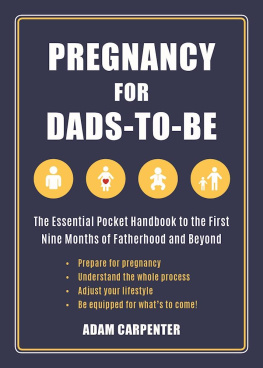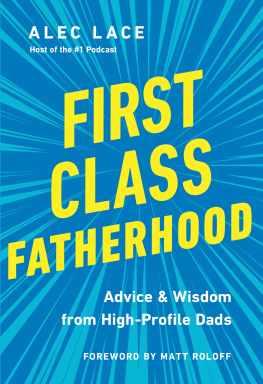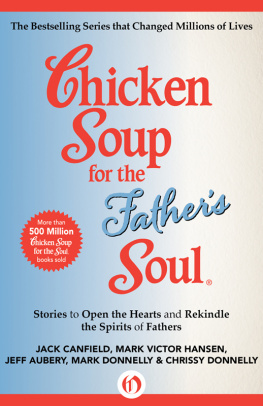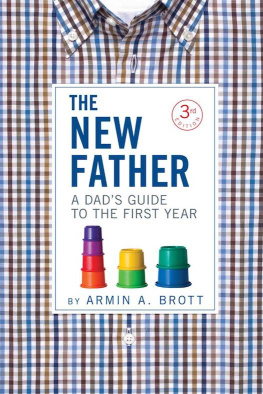Contents
Guide
Page List
DAD BOD
DAD BOD
portraits of pop culture papas
CIAN CRUISE

Copyright Cian Cruise, 2022
All rights reserved. No part of this publication may be reproduced, stored in a retrieval system, or transmitted in any form or by any means, electronic, mechanical, photocopying, recording, or otherwise (except for brief passages for purpose of review) without the prior permission of Dundurn Press. Permission to photocopy should be requested from Access Copyright.
Epigraphs on page 125 from Joseph Campbells The Masks of God: Creative Mythology, Digital Edition, Copyright 2016 Joseph Campbell Foundation (jcf.org). Used with permission.
Publisher: Scott Fraser | Acquiring editor: Julie Mannell
Cover designer: Laura Boyle
Cover image: suit: istock.com/VasjaKoman tshirt: istock.com/AaronAmat
Library and Archives Canada Cataloguing in Publication
Title: Dad bod : portraits of pop culture papas / Cian Cruise.
Names: Cruise, Cian, author.
Identifiers: Canadiana (print) 20220165416 | Canadiana (ebook) 20220165440 | ISBN 9781459749474 (softcover) | ISBN 9781459749481 (PDF) | ISBN 9781459749498 (EPUB)
Subjects: LCSH: Fathers. | LCSH: Fatherhood. | LCSH: Fathers in mass media. | LCSH: Men in popular culture.
Classification: LCC HQ756 .C78 2022 | DDC 306.874/2dc23

We acknowledge the support of the Canada Council for the Arts and the Ontario Arts Council for our publishing program. We also acknowledge the financial support of the Government of Ontario, through the Ontario Book Publishing Tax Credit and Ontario Creates, and the Government of Canada.
Care has been taken to trace the ownership of copyright material used in this book. The author and the publisher welcome any information enabling them to rectify any references or credits in subsequent editions.
The publisher is not responsible for websites or their content unless they are owned by the publisher.
Rare Machines, an imprint of Dundurn Press
1382 Queen Street East
Toronto, Ontario, Canada M4L 1C9
dundurn.com, @dundurnpress 


For my family
Contents
Prologue
What is a man? A miserable little pile of secrets.
Dracula, Castlevania: Symphony of the Night, Prologue
On the evening Of December 21, 2018, I was standing in the stone cold of a polar vortex outside of my local rep cinema, The Revue. I was with my brothers- and sisters-in-law, but not my wife. She was almost a week overdue, and her family had come up to Toronto so that we could spend some time together for the holidays. This was the last movie I would see before my son was born, four days later, after thirty-six hours of labour, at two thirty in the afternoon on Christmas Day.
We were waiting in line to see Die Hard.
It is shocking, in retrospect, how appropriate it was that Die Hard was the last movie I saw before becoming a dad. Die Hard has been, for many, many years, my deeply avowed favourite film. Ive seen Die Hard in theatres over twenty times. Ive seen it on television, monitors, and airplanes countless more. Each time I am in the presence of Bruce Williss greatest contribution to the human condition, a rictus grin of pure unadulterated entertainment is plastered on my face.
When I was twelve, my grandmother bought me the Die Hard trilogy on VHS. It came in a gunmetal-grey box that weighed as much as my approaching adolescence. This movie shaped me in many weird ways. I developed a bizarre habit of always looking for hiding spots when I entered a new place, just in case terrorists (who werent really terrorists) struck, so that I could be the one person not caught by them and could thus disrupt their nefarious plans. The fly in the ointment. The monkey in the wrench.
During university, I studied film, which meant that I watched a lot of movies that were nothing like Die Hard. And yet, even my art-house Iranian film professor made us watch Die Hard to analyze its script and pacing. This woman devoted an entire lecture to how bad she thought The Big Lebowski was. Just hated it. The films she made were weird, artisanal vlogs from a pre-YouTube time. Diarist entrails of a purely esoteric artistic aristocracy. And yet, even she said that Die Hard was a Swiss watch of a film. Every structural element of the plot beat with perfect precision.
Now, as I continue to study the craft of writing, and I look back on Die Hard, I find myself surprised by the weird layers it has, and what it can tell us about family, masculinity, and the action-movie genre itself.
But none of that was on my mind on December 21, 2018. I just wanted to watch my favourite movie with some new people, and relieve a bit of the tension that came from waiting for my overdue baby to be born.
Two weeks later, my wife and I were on the couch, bingeing the first two seasons of the Castlevania
My wife was propped up with pillows, recovering from the visceral ordeal of childbirth. She was akin to a warrior of old, resting after a duel with the forces of nature. Like Beowulf, she was filled with old-fashioned Germanic mirth after her brush with both the cosmic and the chthonic. She had brought new life from within her out into the world. Our son. Our little god. A miracle emerging from the kiln of chaos.
Knees up, legs apart, ice applied at regular intervals.
On her laptop, Dracula was in an old-fashioned punchout with his son, Alucard. They had cast aside weapons and magic, allies and pretense, stripped down to the eternal power struggle between father and son. Expressed in that most primal form of violence, the fist.
We were riveted to our tiny screen as Dracula repeatedly slugged his dhampir son through the thick stone walls of the Counts Gothic castle complex.
Then Dracula punched Alucard through one last wall, into Alucards childhood bedroom.
And something amazing happened.
The high-octane, excellently animated battle set piece dissolved into a broken monologue and for six or seven seconds, Castlevania transcended its genre, medium, and franchise history.
Upon seeing his sons nursery, the superhuman rage bled out of Draculas eyes. My boy, Dracula said, taloned hands clutching his chest. Im killing my boy.
Those two words messed us up. They were delivered with such authenticity and skill, I have to call out Graham McTavishs vocal chords. Magnificent pipes. Between shared tears, my wife and I looked over at our son, sleeping in his little motorized swing set.
We painted this room, we made these toys, Dracula continued, soliloquizing now to his dead wife. Its our boy. Your greatest gift to me, and Im killing him. He paused.
I must already be dead.
The Lord of Darkness mourning his lost child and, through it, his own lost humanity was a hot emotional knife neither of us was prepared for. We had signed up for a spot of adventure and undead slaying to get us through the afternoon, not inadvertent profundity.

